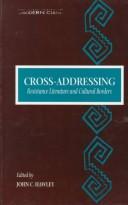| Listing 1 - 4 of 4 |
Sort by
|

ISBN: 1282263145 9786612263149 0253003164 9780253003164 9781282263147 6612263148 9780253351210 0253351219 9780253219756 0253219752 Year: 2008 Publisher: Bloomington Indiana University Press
Abstract | Keywords | Export | Availability | Bookmark
 Loading...
Loading...Choose an application
- Reference Manager
- EndNote
- RefWorks (Direct export to RefWorks)
Africa --- India --- Eastern Hemisphere --- Bharat --- Bhārata --- Government of India --- Ḣindiston Respublikasi --- Inde --- Indië --- Indien --- Indii︠a︡ --- Indland --- Indo --- Republic of India --- Sāthāranarat ʻIndīa --- Yin-tu --- インド --- هند --- Индия --- Relations --- #SBIB:39A73 --- #SBIB:39A75 --- Etnografie: Afrika --- Etnografie: Azië --- Afrique

ISBN: 0585077800 9780585077802 079142927X 0791429288 1438406185 Year: 1996 Publisher: Albany, NY : State University of New York Press,
Abstract | Keywords | Export | Availability | Bookmark
 Loading...
Loading...Choose an application
- Reference Manager
- EndNote
- RefWorks (Direct export to RefWorks)
Literature, Comparative. --- Literature, Modern --- Multiculturalism. --- Outsiders in literature. --- Comparative literature. --- Comparative literature --- Literature, Comparative --- Philology --- Cultural diversity policy --- Cultural pluralism --- Cultural pluralism policy --- Ethnic diversity policy --- Multiculturalism --- Social policy --- Anti-racism --- Ethnicity --- Cultural fusion --- History and criticism. --- History and criticism --- Government policy --- Literature [Comparative ] --- Literature [Modern ] --- Outsiders in literature
Book
ISBN: 1438454635 9781438454634 9781438454610 1438454619 1438454627 Year: 2015 Publisher: Albany
Abstract | Keywords | Export | Availability | Bookmark
 Loading...
Loading...Choose an application
- Reference Manager
- EndNote
- RefWorks (Direct export to RefWorks)
Many educational professionals agree that the time has come to expand their circle of inclusion and broaden their definition of diversity by increasing LGBTQ studies, but the question of how to do so is still debated. Although some colleges and universities have been incorporating LGBTQ studies for decades, courses and programs continue to be pockets of innovation rather than models of inclusion for all of higher education. Colleges and universities need to encourage faculty members to teach and research a wide range of LGBTQ topics, as well as support student life professionals in building inclusive campus communities. This book includes testimonies that alert educators to possible pitfalls and successes of their policies through an analysis of changing student attitudes. Based on these case studies, the contributors offer practical suggestions for the classroom and the provost's office, demonstrating not only the gains that have been made by LGBTQ students and the institutions that serve them, but also the tensions that remain.
Transgender people --- Bisexual college students --- Lesbian college students --- Gay college students --- Gays in higher education --- Education, Higher --- Homosexuality and education --- Sexual minority college students --- Minority college students --- Sexual minorities in higher education --- Sexual minority students --- College students --- TG people --- TGs (Transgender people) --- Trans-identified people --- Trans people --- Transgender-identified people --- Transgendered people --- Transgenders --- Transpeople --- Persons --- Education (Higher) --- Social aspects --- Gay people in higher education
Book
ISBN: 1527568040 Year: 2021 Publisher: Newcastle upon Tyne, UK : Cambridge Scholars Publishing,
Abstract | Keywords | Export | Availability | Bookmark
 Loading...
Loading...Choose an application
- Reference Manager
- EndNote
- RefWorks (Direct export to RefWorks)
Suitable for the classroom but completely accessible to the general reader, this volume presents many of the most interesting authors writing today from an Islamic background--Kamel Daoud, Yasmine el Rashidi, Hisham Matar, Tahar Djaout, Mohsin Hamid, Hanif Kureishi, Edward Said, Driss Chaibi, Kamila Shamsie, Tahar ben Jelloun, Leila Aboulela, Abdellah Taïa, Ayaan Hirsi Ali, Hisham Matar, Eboo Patel, Reza Aslan, and Tamim Ansary, among others--who embody the various strains of Islamic interpretation and conflict. This study discusses an ongoing Reformation in Islam, focusing on the Arab Spring, the role of women and sexuality, the "clash of civilizations," assimilation and cosmopolitanism, jihad, pluralism across cultures, free speech and apostasy. In an atmosphere of political and religious awakening, these authors search for a voice for individual rights while nations seek to restore a "disrupted destiny." Questions of "de-Arabization" of the religion, ecumenicism, comparative modernities, and the role of literature thread themselves throughout the chapters of the book.
| Listing 1 - 4 of 4 |
Sort by
|

 Search
Search Feedback
Feedback About UniCat
About UniCat  Help
Help News
News